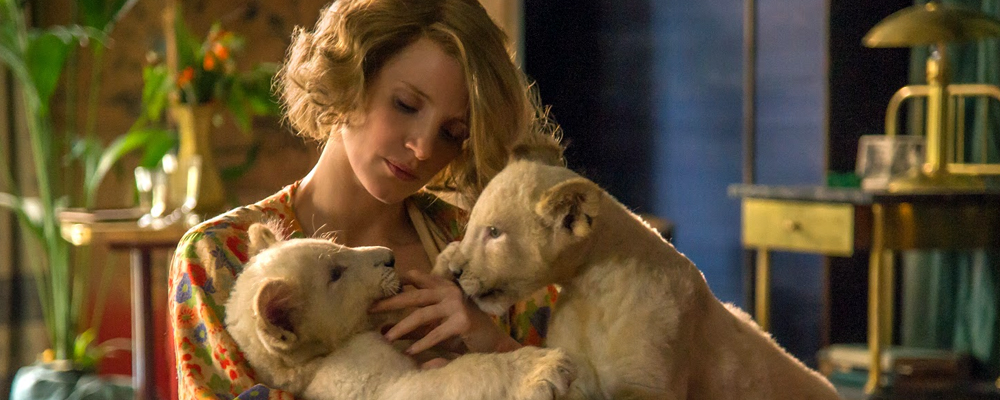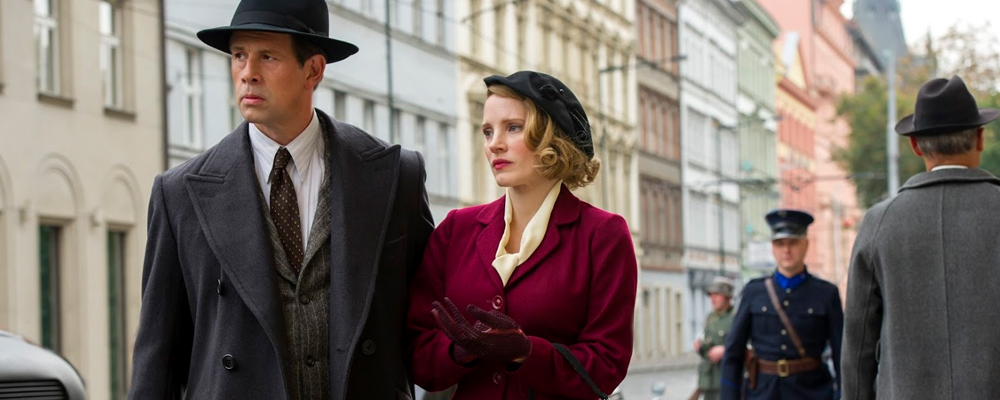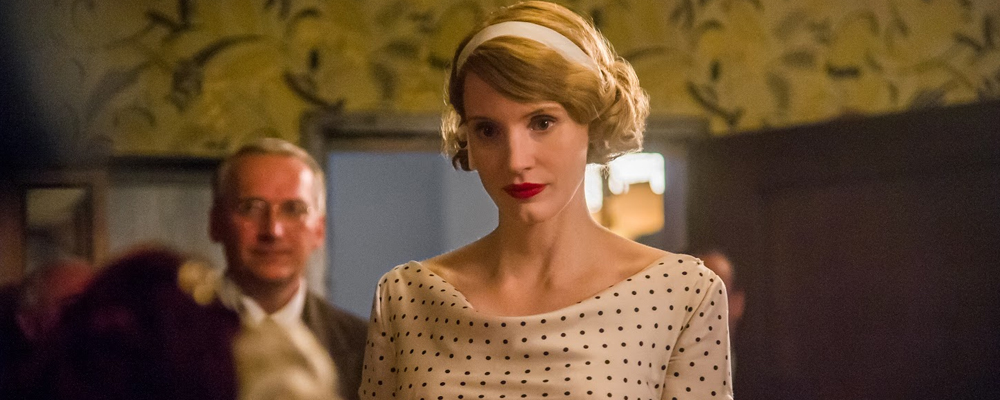Jessica Chastain Brings a Holocaust-Era Hero to Life in Niki Caro’s ‘The Zookeeper’s Wife’
Allyson Gronowitz
It isn’t difficult to imagine what compelled Jessica Chastain to take on the role of the titular character in “The Zookeeper’s Wife,” Antonina Zabinski is just the type of passionate, justice-driven woman Chastain has become known for playing on the big screen. But unlike her other films, “The Zookeeper’s Wife” – adapted by Angela Workman from the book by Diane Ackerman – is true, and the film is all the more important because of it.
“The Zookeeper’s Wife” tells the story of Antonina (Chastain, who also serves as executive producer) and Jan Zabinski (Johan Heldenbergh), keepers of the Warsaw Zoo who saved hundreds of local Jews during the Holocaust by smuggling them through empty animal cages. Directed with careful, unflinching poignancy by Niki Caro (“Whale Rider”), “The Zookeeper’s Wife” is a Holocaust movie that avoids the pitfalls of melodrama: the protagonists aren’t blindly idolized, and the antagonists aren’t painted as over-the-top, moustache-twirling villains. Rather, the tension is insidious in a way that feels hauntingly authentic, while both Jan and Antonina exude a genuine caring for the animals in their beloved zoo.
The film begins with a glimpse of the charmed, day-to-day life of the Zabinskis before the war comes to Poland: the Zabinskis’ son, Ryszard (played by Timothy Radford as a boy and Val Maloku as a young teen) snuggles in bed with a menagerie of exotic pets, and a particularly playful camel trots alongside Antonina during her morning rounds. The day sparkles with bright optimism as animals roam about unhindered – a sharp contrast to the plight of the nearby Jewish townspeople, confined to the infamously brutal Warsaw ghetto. The only ominous indication of things to come is the presence of Hitler’s head zoologist Lutz Heck (played by Daniel Brühl, whose jawline and German heritage could easily guarantee him Aryan roles for life), who threatens the Zabinskis and their zoo at every turn.
It is Hetz who unwittingly provides the Zabinskis with a ploy to hide their Jewish friends (and then, dozens more), after the September 1939 Warsaw bombing leaves them with significantly fewer animals. Antonina suggests they turn the zoo into a pig farm to feed the German troops, and use refuse from the ghetto to feed the pigs. Hetz points out the irony of “a treif [non-Kosher meat] farm fed by Jewish garbage,” but of course, the real irony is that the so-called “treif farm” will be saving so many Jewish lives.
Under Caro’s direction, “The Zookeeper’s Wife” shows us glimpses of horror without reveling in it. A wordless drive through the Warsaw ghetto with Jan and his son packs more of an emotional punch than any long-winded exposition, and the image of Jewish children innocently reaching up for assistance to be placed in cattle cars is agonizing more for its suggestion of the atrocities to come than for anything playing out onscreen. We witness two Nazi soldiers leading away a terrified Jewish girl in the ghetto, but the brutality occurs out of sight, and it is her trauma and subsequent recovery in the Zabinskis’ safe haven that commands the screen for the remainder of the film.
On Passover eve 1943, this same girl, Urszula (played by the precocious 21-year-old Israeli actress Shira Haas), leads a melancholy yet defiant Passover Seder in the Zabinski household, while the Warsaw ghetto burns across town. Urszula’s soulful rendition of the “Ma Nishtana” (“What makes this night different from all other nights?”) permeates the interlocking scenes, emphasizing their solemnity. What’s more, “Ma Nishtana” compliments Harry Gregson-Williams’s lilting score perfectly. (The film’s official website even contains a Haggadah supplement for the upcoming Passover Seder.)
Antonina and Jan Zabinski were granted the honorific title of “Righteous Among the Nations” by Yad Vashem (Israel’s Holocaust Museum), a title also bestowed upon Oskar Schindler of “Schindler’s List” fame. In “The Zookeeper’s Wife,” both Chastain and Heldenbergh movingly portray the quiet heroism of the Zabinskis (though Chastain’s exaggerated Eastern European accent proves somewhat distracting at times). With little pomp and circumstance, the Zabinskis – and the film as a whole – show that even the smallest light can penetrate a dense darkness.
“The Zookeeper’s Wife” will be released nationwide on March 31.



